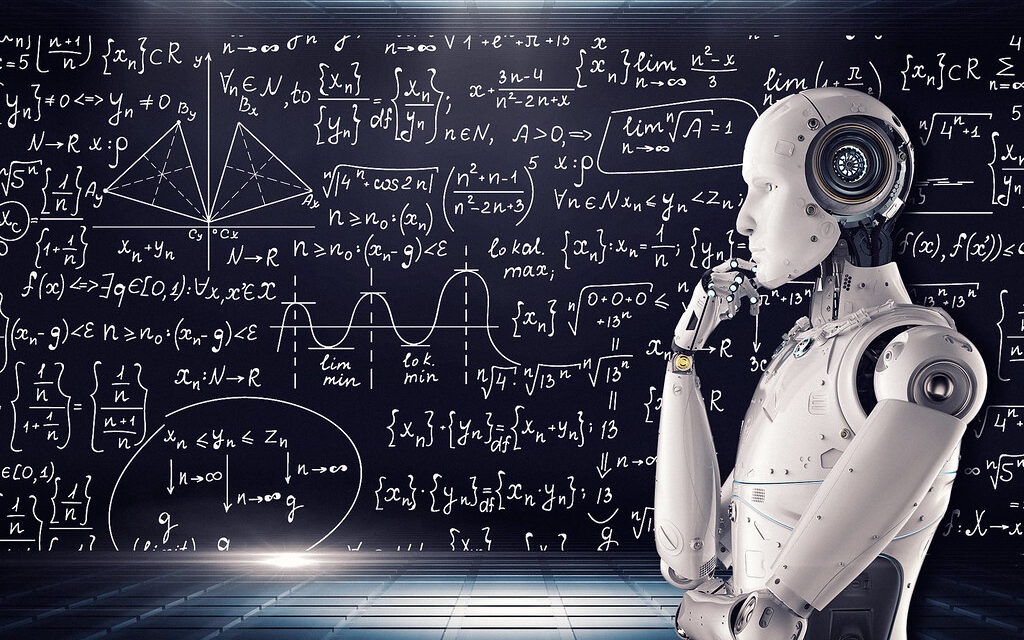In today’s digital age, businesses across various industries are leveraging artificial intelligence (AI) to streamline their operations, improve customer experiences, and gain a competitive edge. Artificial Intelligence in fashion industry is beginning to see some impact mostly in retail section of the industry.
From predicting consumer trends to optimizing supply chain management, AI is transforming the way the fashion industry operates. In this blog post, we’ll explore the benefits of AI in the fashion industry, and how it’s changing the face of fashion retail.
Understanding the Role of AI in the Fashion Industry
Artificial intelligence is a technology that enables machines to perform tasks that would typically require human intelligence, such as learning, problem-solving, and decision-making. In the fashion industry, AI is used to improve the efficiency and effectiveness of various business processes, from product design to supply chain management. AI can also help fashion retailers analyze data to identify trends and customer preferences, enabling them to make data-driven decisions about product development and marketing.
Benefits of Artificial Intelligence in Fashion Industry
One of the primary benefits of AI in the fashion industry is the ability to automate repetitive tasks, such as data analysis and product recommendations. This allows retailers to free up their employees’ time to focus on more complex tasks, such as customer service and product development. Additionally, AI can help fashion retailers optimize their supply chain management, by predicting demand and identifying potential bottlenecks in the production process.
Another benefit of AI in the fashion industry is the ability to personalize the shopping experience for each customer. By analyzing customer data, AI can make product recommendations and suggest outfits that align with the customer’s style preferences. This helps retailers increase customer loyalty and drive sales, by creating a personalized experience for each customer.
AI and Fashion Industry:
Use Cases Let’s take a closer look at some of the ways AI is being used in the fashion industry:
- Trend Analysis AI can analyze vast amounts of data from social media, online shopping, and other sources to identify emerging fashion trends. This enables retailers to create products that are more likely to be popular among consumers, improving sales and customer satisfaction.
- Product Design AI can help fashion designers create better products by providing insights into customer preferences and market trends. By using AI-powered design tools, designers can generate new ideas and refine existing ones, improving the overall quality of their products.
- Supply Chain Management AI can help fashion retailers optimize their supply chain management by predicting demand and identifying potential bottlenecks in the production process. This enables retailers to reduce waste, improve efficiency, and lower costs.
- Personalized Recommendations By analyzing customer data, AI can make personalized product recommendations that align with the customer’s style preferences. This helps retailers increase customer loyalty and drive sales, by creating a personalized experience for each customer.
- Virtual Try-On AI-powered virtual try-on tools allow customers to try on clothing virtually, improving the online shopping experience and reducing the likelihood of returns. This helps retailers reduce costs and improve customer satisfaction.
Challenges of AI in the Fashion Industry
While AI has many benefits for the fashion industry, there are also some challenges that must be addressed. One challenge is the need for large amounts of data to train AI models effectively. Another challenge is the potential for bias in AI algorithms, which can lead to unfair treatment of certain customers or groups.
Another challenge of AI in the fashion industry is the potential impact on jobs. As AI becomes more prevalent in the industry, some jobs may become automated, leading to job loss for some workers. However, it’s important to note that AI can also create new job opportunities in areas such as data analysis and AI development.
Frequently Asked Questions About AI and the Fashion Retail:
- How is AI used in the fashion industry?
AI is being used in the fashion industry in various ways, such as trend analysis, product design, supply chain management, personalized recommendations, and virtual try-on. By analyzing data from social media, online shopping, and other sources, AI can identify emerging fashion trends and provide insights into customer preferences and market trends. AI-powered design tools can help designers generate new ideas and refine existing ones, improving the quality of their products. AI can also help retailers optimize their supply chain management by predicting demand and identifying bottlenecks in the production process. Personalized recommendations and virtual try-on tools provide customers with a more personalized shopping experience, leading to increased customer satisfaction and loyalty.
- What are the benefits of AI in the fashion industry?
The benefits of AI in the fashion industry are numerous. One of the primary benefits is increased efficiency and effectiveness in various business processes, such as data analysis and supply chain management. AI can also help fashion retailers identify emerging trends and customer preferences, allowing them to make data-driven decisions about product development and marketing. Personalized recommendations and virtual try-on tools can increase customer satisfaction and loyalty, leading to increased sales and revenue. Additionally, by automating repetitive tasks, such as data analysis and product recommendations, AI can free up employees’ time to focus on more complex tasks, such as customer service and product development.
- What are the challenges of AI in the fashion industry?
While AI has many benefits for the fashion industry, there are also some challenges that must be addressed. One challenge is the need for large amounts of data to train AI models effectively. Another challenge is the potential for bias in AI algorithms, which can lead to unfair treatment of certain customers or groups. Additionally, as AI becomes more prevalent in the industry, some jobs may become automated, leading to job loss for some workers. To address these challenges, fashion retailers must ensure that they have access to high-quality data, develop fair and unbiased AI algorithms, and prepare workers for the potential impact on jobs by providing training and upskilling opportunities.
- How does AI impact the customer experience in the fashion industry?
AI has a significant impact on the customer experience in the fashion industry. By analyzing customer data, AI can make personalized product recommendations that align with the customer’s style preferences. Virtual try-on tools allow customers to try on clothing virtually, improving the online shopping experience and reducing the likelihood of returns. Additionally, AI-powered chatbots can provide customers with instant support and assistance, improving the overall customer experience. By providing a more personalized and streamlined shopping experience, AI can increase customer satisfaction and loyalty, leading to increased sales and revenue for fashion retailers.
- How will AI shape the future of the fashion industry?
AI is expected to have a significant impact on the future of the fashion industry. As AI becomes more prevalent, fashion retailers will be able to make more informed decisions about product development and marketing, leading to increased efficiency and effectiveness. Additionally, AI-powered tools will continue to improve the customer experience by providing more personalized and streamlined shopping experiences. As AI technology advances, it may also be used to create new and innovative products that were previously impossible to develop. However, as with any technology, there are also potential risks and challenges associated with AI, and it’s important for fashion retailers to address these as they adopt AI in their operations.
Conclusion
In conclusion, AI is revolutionizing the fashion industry, providing retailers with new ways to improve efficiency, reduce costs,
and enhance the customer experience. By leveraging AI to automate tasks, personalize the shopping experience, and optimize supply chain management, fashion retailers can stay ahead of the competition and meet the changing demands of consumers.
To successfully implement AI in the fashion industry, retailers must address challenges such as the need for large amounts of data and the potential for bias in AI algorithms. Additionally, they must prepare for the potential impact on jobs and ensure that workers are equipped with the skills needed to thrive in an AI-driven industry.
Overall, the benefits of AI in the fashion industry are clear. By leveraging the power of AI, fashion retailers can create better products, increase customer satisfaction, and stay ahead of the competition in an increasingly crowded market.
Title: AI and Fashion Retail Industry: How Artificial Intelligence is Revolutionizing the Fashion Industry Slug: ai-in-fashion-retail-industry Meta description: Learn how AI is transforming the fashion industry, from trend analysis to personalized recommendations, and the benefits and challenges it brings.










